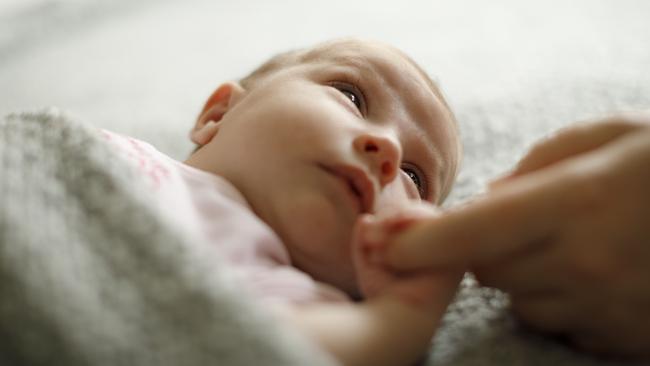Bacteria in the uterus may be key to IVF success
Antibiotics may be able to rebalance the make-up of bacteria in the uterus to boost the chances of a woman falling pregnant through IVF, new research has found.
VIC News
Don't miss out on the headlines from VIC News. Followed categories will be added to My News.
The constellation of bugs in the gut are now known to influence most aspects of human health, such as dementia, blood pressure, obesity and digestive problems. And this same bacteria in the uterus is emerging as the next frontier to treat and increase a woman’s chance of getting pregnant.
New research presented at the Fertility Society of Australia’s annual conference has found that the make-up of a woman’s endometrial microbiome can reduce or boost the likelihood of an embryo implanting in her womb.
New human trials will test whether antibiotics can rebalance this universe of bacteria and boost the standard 30 per cent chance each IVF cycle has of working.

University of Valencia’s Professor Carlos Simon said, given a woman’s reproductive tract contained 9 per cent of the bacteria she carried in her body, the microbiota was an IVF achilles heel that was being targeted in the search for higher success rates.
“Until now the embryo has been the main focus, which is crucial, but the other main player is the mother — the endometrium,” she said.
“We are living in a microbial world, and the uterus is no exception. If you have an alternation to your microbiome, such as infection, the embryo will have a hard time to implant. We now have a system to analyse it.”
A pilot study, and follow-up observational study of 200 women, found that pregnancy rates were affected when the endometrium microbiome was altered. Prof Simon will start recruiting next year for a clinical trial that will test whether analysing a woman’s individual uterus bacteria and treating her with specific antibiotics can boost her chance of getting pregnant.
Sydney obstetrician-gynaecologist and president of the Fertility Society of Australia, Professor Michael Chapman told the conference that the next decade of assisted reproductive treatment would focus on using algorithms to improve patient satisfaction of IVF.
MORE NEWS
CORRUPTION CLAIMS IN FOOTY SCANDALS
ANDREWS HIGHEST PAID PREMIER IN THE COUNTRY
PELL LAUNCHES LAST-DITCH FREEDOM BID
The society has worked with the University of New South Wales to develop an online predictive tool for the one in six Australian couples experiencing infertility, to measure their chance of IVF success before they start treatment.
They hope the federally funded tool will be live next year.
“One of the reasons people are unhappy after treatment is their expectations haven’t been met,” Prof Chapman said.
“A woman’s age is still a major predictor, but so are things like endometriosis, the father’s age, pregnancy history, if she’s a smoker or overweight. They’ll all be put in an algorithm for an individual patient.”


